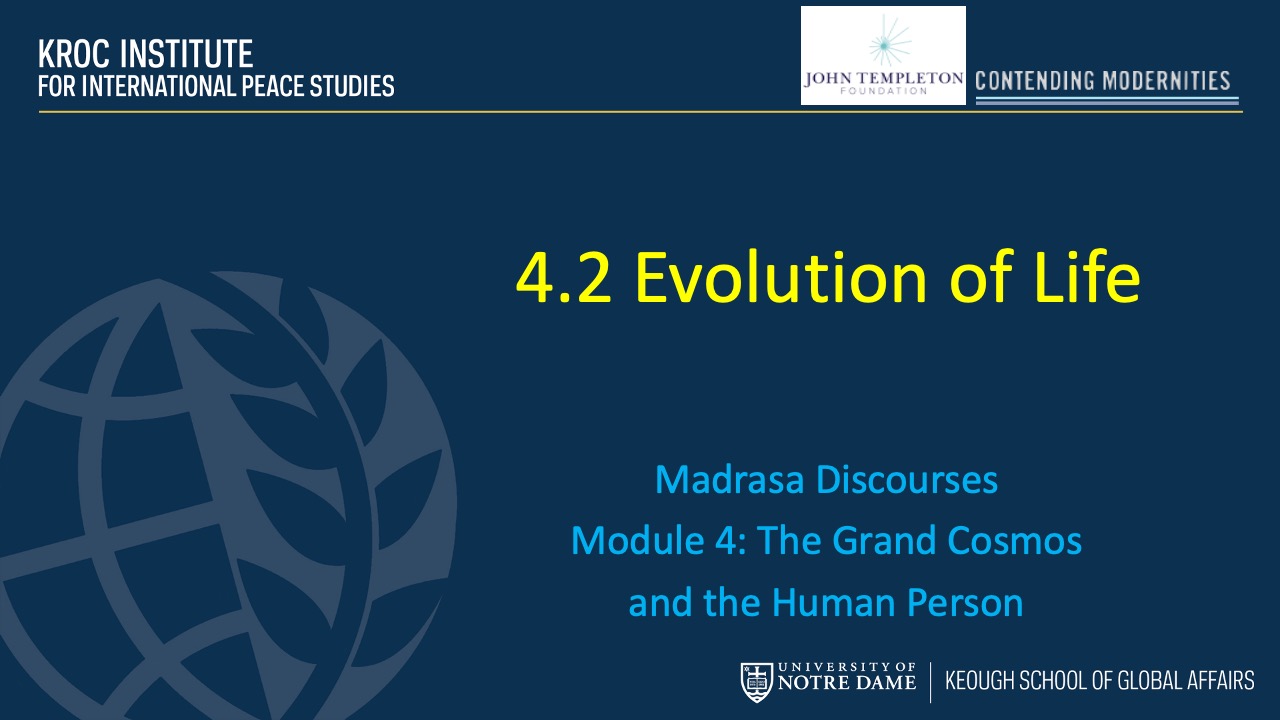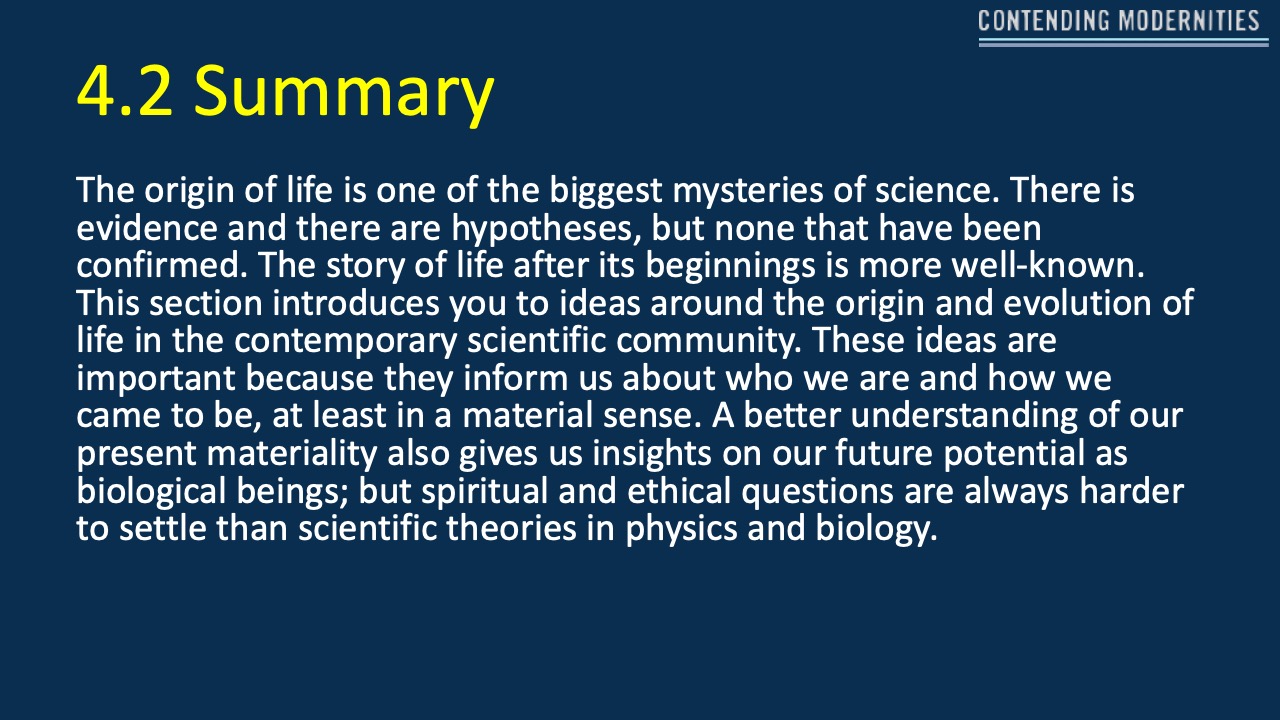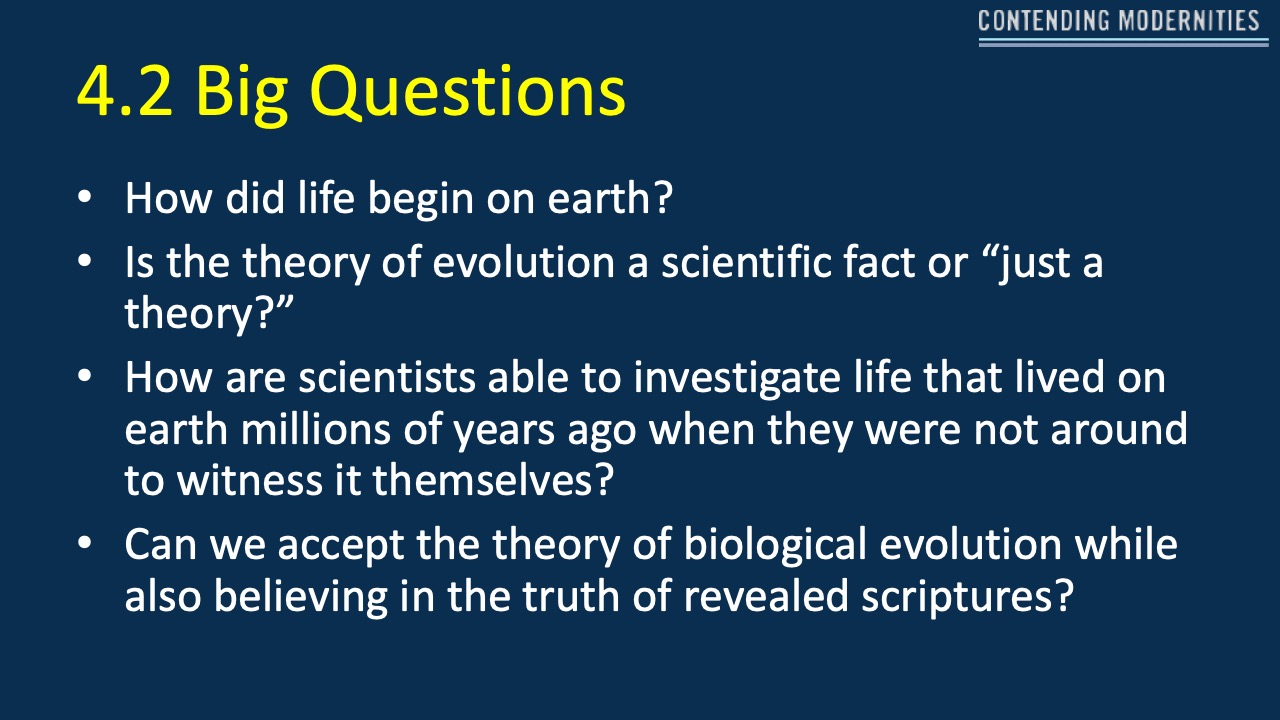How did life on Earth come to be? How do contemporary theories make sense of the available evidence, and how do different perspectives portray the role of the divine? In this section we’ll learn about how the building blocks of organic life may have emerged, and look at the discoveries and theories that transitioned the scientific consensus away from a static and eternal view of species.
The idea of evolution, proposed by Charles Darwin* in his 1871 book, The Descent of Man, describes a mechanism to explain biological change and diversity. It has been elaborated by scientific evidence and corroborated by biological studies that trace genetic change over time in species such as mice or fruit flies. The theory proposes that sexual reproduction selects certain traits as more advantageous for that species’ particular environment. These traits are then more likely to be reproduced. This is largely a probabilistic argument that explains why certain traits become more common than others, and makes the overarching claim that all species share a common ancestor from which divergence occurred through sexual selection, giving rise to the diversity of species we see in the world today.
The Islamic theological schools generally follow Aristotelian scientific premises and place the creation of mankind directly in God’s hands. Interpreting scripture, man is imagined to be molded from clay and life is breathed into him. Rather than reading this allegorically, it is seen as a miraculous creation. The creation of other animals is also given a personal connection, as God individually creates all things. This doctrine finds its culmination in the doctrine of occasionalism, championed by Abu Hāmid al-Ghazāli (d. 1111), of Incoherence of the Philosophers fame, who said that God in fact creates the universe from moment to moment, and thus even causality is only an apparition of habit (‘āda) rather than some kind of universal law. This idea elevates God’s omnipotence over the power of the human intellect to grasp truth in the real world.
A static, Aristotelian perspective of the natural world as held by these theological schools certainly conflicts with contemporary biology, as does one that sets human creation apart from that of the rest of life. Yet many of the purported points of contention between Islam and evolution have less to do with evolutionary theory and more to do with imported assumptions about Darwin and evolution’s proponents, or complex refutations of colonialism and “social Darwinism.”
Key Terms:
- Evolution
- Creationism
- Social Darwinism
- Natural selection
*Note: Alfred Russel Wallace simultaneously and separately conceived of the theory of evolution, and published jointly on the topic with Darwin.
Thumbnail: Jellyfish, Monterey Aquarium, California. Photo Credit: Peter Szekely, 2018. CC BY-SA 2.0.
Learning Materials:
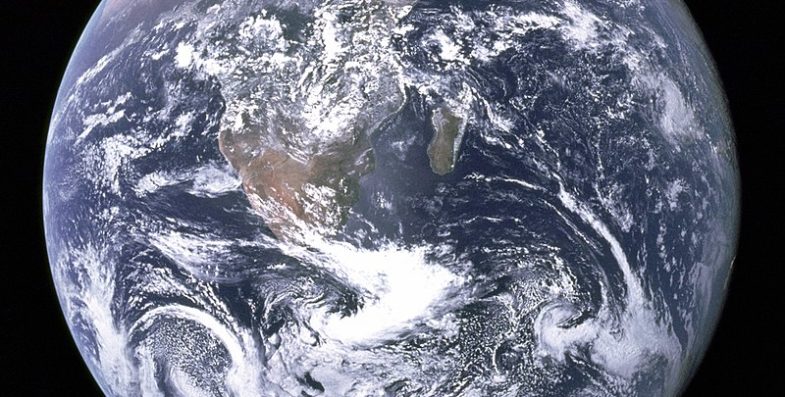
4.2.1 The Most Astounding Fact
Our atoms came from those stars. (NASA/"Blue Marble")
Read More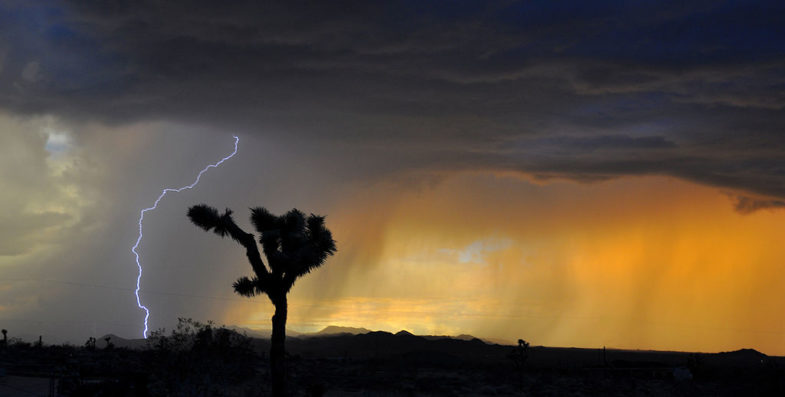
4.2.2 Seven Theories on the Origin of Life
How did life begin on Earth? (Jessie Eastland/"Desert Electric")
Read More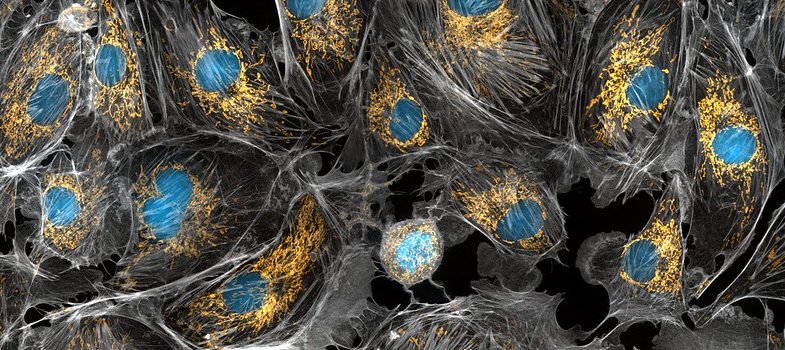
4.2.3 Have Muslims Misunderstood Evolution?
Evolution is an organizing principle for the wealth of evidence on biological change. (NIH/"Mitochondria")
Read More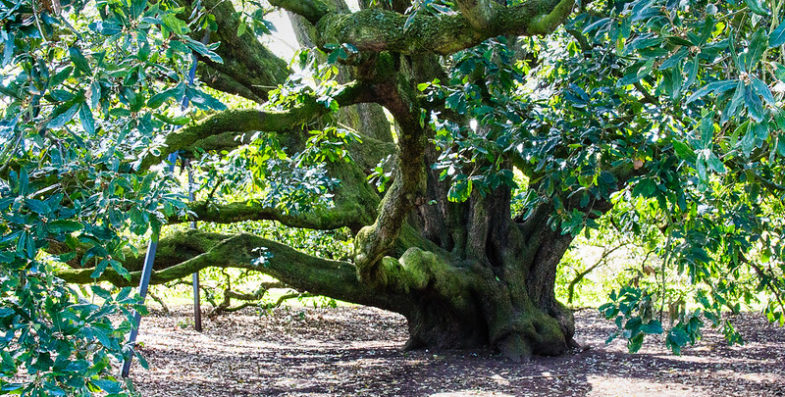
4.2.4 Teaching Evolution to Muslim Students
Dr. Rana Dajani explains the theory of evolution through the lens of Islam. (John6536/"Kew Gardens")
Read More
4.2.5 In the Shadow of Modernity
Did Al-Afghani object to the idea of natural selection? (Nasim Yousaf/"Khaksar Movement")
Read More
4.2.6: Biology and Evolution
What discoveries led from Aristotelian "natural history" to "biology" and "evolution"? (Tom Benson/"Red Crossbill")
Read More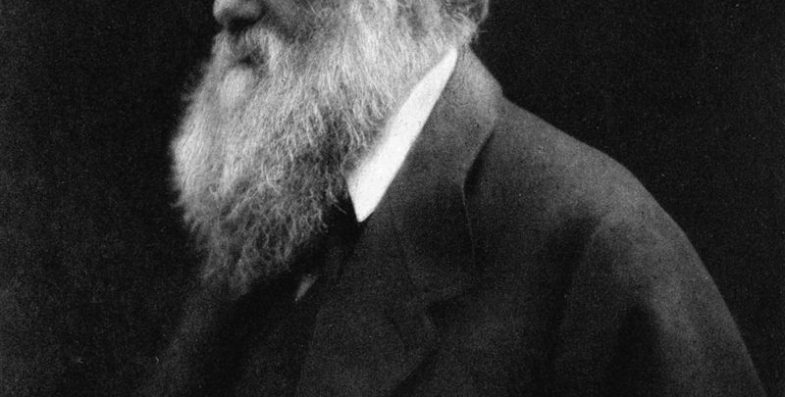
4.2.7 What is Darwin’s Theory of Evolution?
Natural selection is the process by which organisms change over time. (Julia Margaret Cameron/"Charles Darwin")
Read More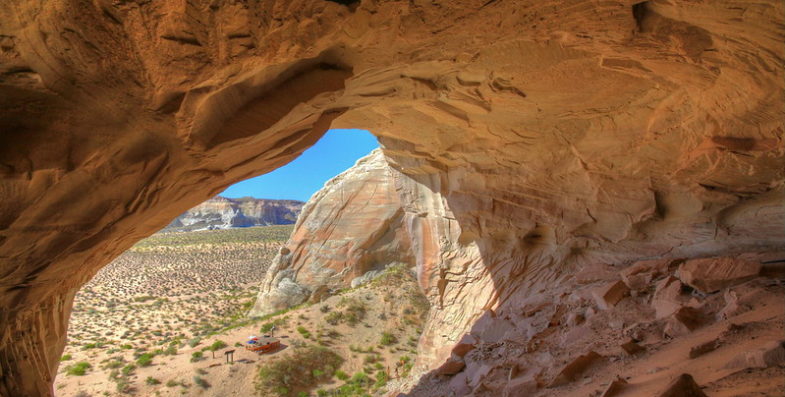
4.2.8 Darwin and Dunya (Supplemental)
Muslim responses to the publication of Darwin's On the Origin of Species were mixed, but Islamic creationism is on the rise. (NASA/"Abell 2744 Cluster")
Read More

